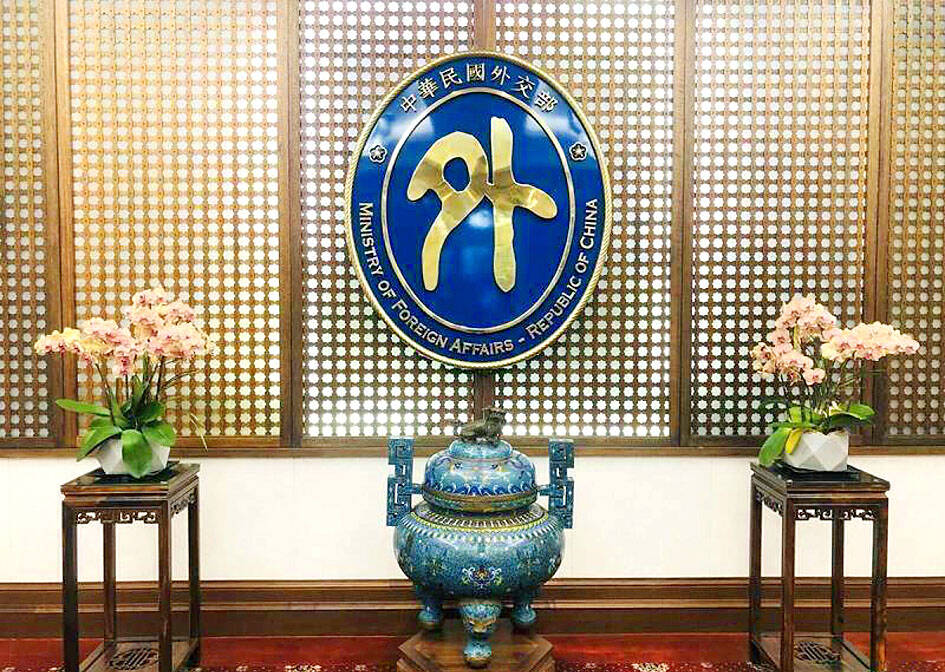The American Institute in Taiwan and the Taipei Economic and Cultural Representative Office in the US held a meeting on Wednesday to discuss Taiwan’s participation in international organizations, the US Department of State said on Friday.
The two offices convened with representatives from the US State Department and the Ministry of Foreign Affairs to explore ways to expand Taiwan’s meaningful participation in the UN system and other international forums, the department said in a news statement.
These include the World Health Assembly and other global public health bodies, the International Civil Aviation Organization, as well as non-UN international, regional and multilateral groups, the statement said.

Photo: Lu Yi-hsuan, Taipei Times
The department said both sides exchanged views on addressing global challenges including public health, aviation safety, environmental protection and transnational crime.
US representatives highlighted Taiwan’s “exceptional expertise” and “valuable contributions” in those areas, it said.
The meeting’s participants all recognize the importance of working closely with partners who share US concerns about attempts at excluding Taiwan from the international community, it added.
The US’ support for Taiwan’s meaningful participation in international fora is in line with its “one China” policy, guided by the Taiwan Relations Act, the three Joint Communiques, and the “six assurances,” the statement said.
The meeting is an annual bilateral working group discussion for Taiwan and the US, the ministry said in a news release issued yesterday.
The ministry also expressed gratitude for the US’ staunch bi-partisan support for Taiwan’s international participation.
Separately, Taiwan and Japan are to hold an annual meeting in Tokyo this week to review guidelines for the two countries’ fishers in waters that cover the disputed Diaoyutai Islands (釣魚台) — called the Senkaku Islands in Japan — northeast of Taiwan.
The 11th Taiwan-Japan Fishery Committee meeting would take place in the Japanese capital from Tuesday to Thursday under the Taiwan-Japan Fisheries Agreement signed on April 10, 2013, the ministry said.
Under the agreement, Taiwanese fishers can work freely in the designated area without being stopped by Japanese law enforcement vessels, except in territorial waters around the Japan-controled Diaoyutai Islands.
The designated area of 74,000km2 is south of the 27th parallel north, north of Japan’s Yaeyama Islands, and between northern Taiwan and the Okinawa Islands of Japan, the ministry said.
It lies within the overlapping exclusive economic zones of Taiwan and Japan and was the site of frequent fishery disputes between the two countries prior to the signing of the Taiwan-Japan Fisheries Agreement.
Earlier meetings established an emergency contact channel, safety rules and other guidelines for fishing boats operating in the area.
Taiwan and Japan have also agreed to promote the installation of automatic identification systems on fishing vessels to make them easier for law enforcement authorities from both sides to identify.
However, there remain unsolved issues that Taiwan has sought to address at the annual meetings for several years, such as other overlapping exclusive economic zones not covered by the 2013 agreement.
These overlapping areas include waters north of the 27th parallel north and south of the Yaeyama Islands, the Fisheries Agency has said.

An essay competition jointly organized by a local writing society and a publisher affiliated with the Chinese Communist Party (CCP) might have contravened the Act Governing Relations Between the People of the Taiwan Area and the Mainland Area (臺灣地區與大陸地區人民關係條例), the Mainland Affairs Council (MAC) said on Thursday. “In this case, the partner organization is clearly an agency under the CCP’s Fujian Provincial Committee,” MAC Deputy Minister and spokesperson Liang Wen-chieh (梁文傑) said at a news briefing in Taipei. “It also involves bringing Taiwanese students to China with all-expenses-paid arrangements to attend award ceremonies and camps,” Liang said. Those two “characteristics” are typically sufficient

A magnitude 5.9 earthquake that struck about 33km off the coast of Hualien City was the "main shock" in a series of quakes in the area, with aftershocks expected over the next three days, the Central Weather Administration (CWA) said yesterday. Prior to the magnitude 5.9 quake shaking most of Taiwan at 6:53pm yesterday, six other earthquakes stronger than a magnitude of 4, starting with a magnitude 5.5 quake at 6:09pm, occurred in the area. CWA Seismological Center Director Wu Chien-fu (吳健富) confirmed that the quakes were all part of the same series and that the magnitude 5.5 temblor was

The brilliant blue waters, thick foliage and bucolic atmosphere on this seemingly idyllic archipelago deep in the Pacific Ocean belie the key role it now plays in a titanic geopolitical struggle. Palau is again on the front line as China, and the US and its allies prepare their forces in an intensifying contest for control over the Asia-Pacific region. The democratic nation of just 17,000 people hosts US-controlled airstrips and soon-to-be-completed radar installations that the US military describes as “critical” to monitoring vast swathes of water and airspace. It is also a key piece of the second island chain, a string of

The Central Weather Administration has issued a heat alert for southeastern Taiwan, warning of temperatures as high as 36°C today, while alerting some coastal areas of strong winds later in the day. Kaohsiung’s Neimen District (內門) and Pingtung County’s Neipu Township (內埔) are under an orange heat alert, which warns of temperatures as high as 36°C for three consecutive days, the CWA said, citing southwest winds. The heat would also extend to Tainan’s Nansi (楠西) and Yujing (玉井) districts, as well as Pingtung’s Gaoshu (高樹), Yanpu (鹽埔) and Majia (瑪家) townships, it said, forecasting highs of up to 36°C in those areas